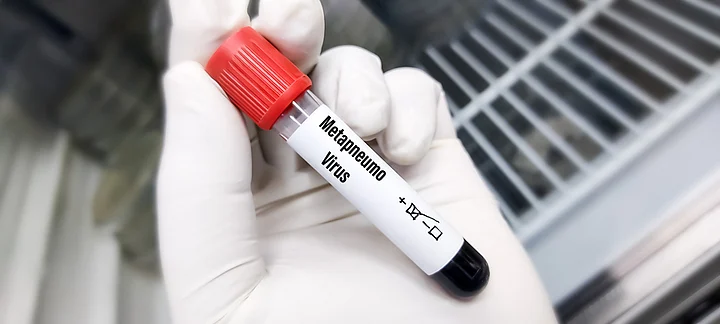Human metapneumovirus (HMPV) can cause upper and lower respiratory disease. The virus can cause harm to people of all ages, especially young children, older adults, and people who have weak immune systems.
The virus was discovered in 2001, HMPV belongs to the Pneumoviridae family along with respiratory syncytial virus (RSV). Molecular diagnostic testing helped discover the virus and since then people have been aware of the condition.
Let's have a look at the causes, symptoms, diagnosis, treatment, and prevention of Human metapneumovirus (HMPV).
Human Metapneumovirus (HMPV): Signs & Symptoms
According to doctors of Cleveland Clinic, these are the following signs and symptoms of HMPV:
Cough
Fever
Nasal congestion
Runny nose
Wheezing
Sore throat
Asthma flare-ups
Shortness of breath.
The incubation period is 3 to 6 days, and the duration of illness can vary depending upon the severity of the illness.
Human Metapneumovirus (HMPV): Causes
According to MedicalNewsToday, HMPV virus spreads from an infected person when they:
Cough.
Shake hands.
Sneeze.
Touch objects or surfaces.
Touch other people.
Human Metapneumovirus (HMPV): Diagnosis
Doctors don't take hMPV tests unless the situation is too serious. He may ask about our family health history and symptoms.
Your healthcare provider may take samples from your nose or throat for a rapid antigen test or PCR (polymerase chain reaction) test. In severe cases, the doctor may do a bronchoscopy to take a fluid sample.
Human Metapneumovirus (HMPV): Treatment & Prevention
There is no specific antiviral therapy to treat HMPV and there is no vaccine as well. But according to CDC, there are a few tips for the prevention of HMPV.
Wash your hands often with soap and water
Avoid touching your eyes, nose, or mouth
Avoid close contact with sick people
Cover your mouth and nose while coughing and sneezing
Avoid sharing your cups and eating utensils with others
Avoid kissing others
Stay at home if you are sick
(At The Quint, we question everything. Play an active role in shaping our journalism by becoming a member today.)
